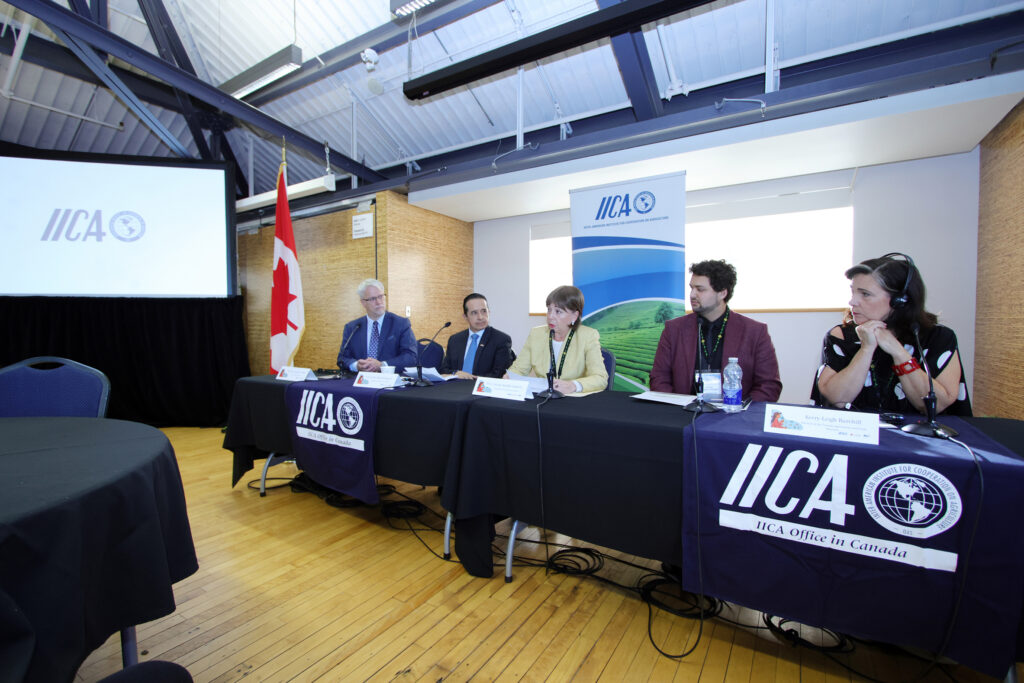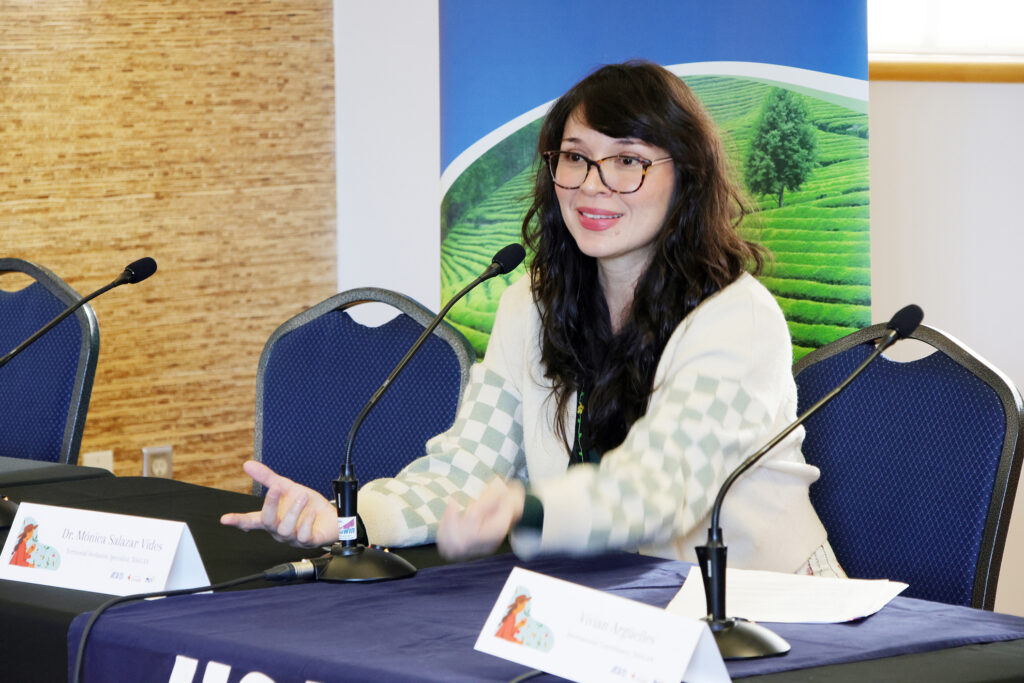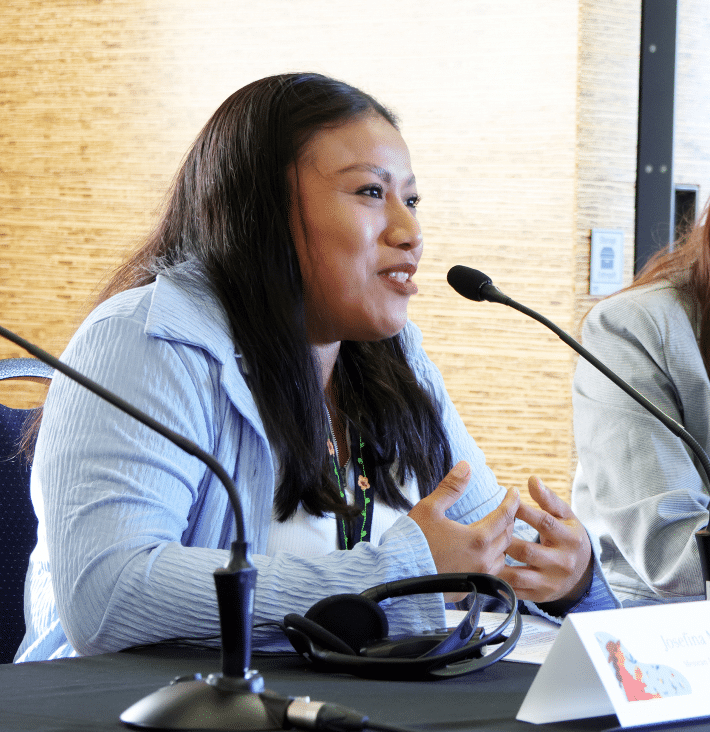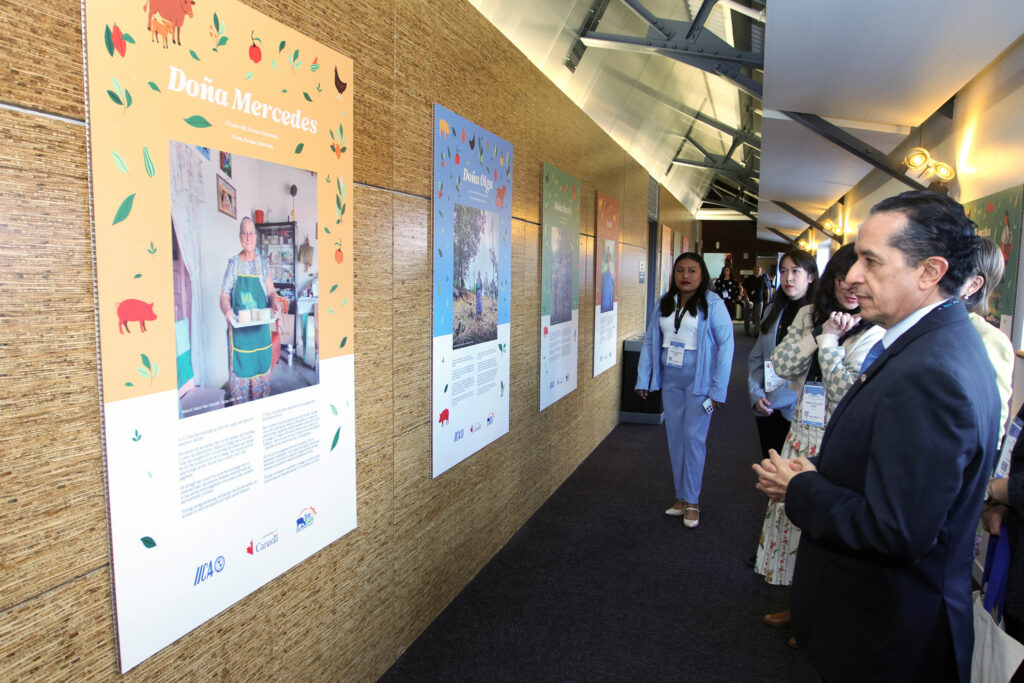OTTAWA, ON – October 15, 2025 – To mark the International Day of Rural Women, the Inter-American Institute for Cooperation on Agriculture (IICA) in Canada, with funding from Global Affairs Canada, launched the “Breaking the Pattern” photographic exhibition at the Canada Agriculture and Food Museum. The event brought together diplomats, government officials, and agricultural leaders to celebrate the vital, yet often invisible, contributions of women in livestock farming in Mexico and Guatemala.
The event served as a platform to share the initial findings and stories from the TeleGAN project, a four-year initiative aimed at enhancing the resilience, sustainability, and equity of 1,300 cattle-ranching families. The project uniquely combines satellite monitoring technology with the local knowledge of farming communities to help them adapt to the escalating impacts of climate change.
A Collaborative Effort for Sustainable Agriculture
Speakers emphasized the importance of international collaboration and gender equality in creating sustainable food systems. Kerry-Leigh Burchill, Director General of the Canada Agriculture and Food Museum, welcomed attendees, stating the museum was “thrilled to be launching the Breaking the Pattern photographic exhibition… which explores evolving agricultural practices and ingenuity in countries that supply so many of the foods that we appreciate and consume here in Canada.”
Representing the project’s key partner and funder, Olivier Tremblay-Robert, Development Officer at Global Affairs Canada, emphasized, “Global Affairs Canada is deeply committed to supporting climate resilient and inclusive agriculture… We are seeing women and youth ranchers lead the way in climate adaptation…Today, I want to affirm Canada’s recognition of these leaders, their ingenuity and courage are essential to building sustainable livestock systems that can withstand climate shocks and support rural livelihoods.”
Diplomatic partners from the project countries shared their support. Her Excellency Guisela Atalida Godinez Sasso, Ambassador of Guatemala, noted, “The inclusion of women in this sector… is of vital, vital importance to strengthen farms for a resilient future and sustainable farming.” His Excellency, Carlos Manuel Joaquin Gonzalez, Ambassador of Mexico, added, “Women are always thinking about the future, not just their own, but that of their families and communities.”Dr. Jean-Charles Le Vallée, IICA Canada Representative, spoke to the organization’s broader mission, stating, “We’re strengthening agriculture ties across the entire continent… and everywhere we are celebrating rural women. It’s a delight for us to work with your communities.”

Project Vision and Key Findings
Following the opening remarks, Vivian Arguelles, the project’s International Coordinator, presented a detailed overview of TeleGAN. She explained that its name, a blend of the Spanish words for “tele =remote sensing” and ” gandería=livestock,” reflects its core strategy: merging advanced satellite monitoring with the invaluable ancestral and local knowledge of farming communities. “Through participatory workshops and farmer field schools, the project works directly with families to co-develop sustainable practices, such as rotational grazing and creating nutritional feed blocks for drought seasons…Making technology accessible and relevant, TeleGAN aims to re-engage youth in agriculture, ensuring the longevity and sustainability of these rural communities” she explained.

The keynote address, delivered by the project’s Territorial Inclusion Specialist, Monica Salazar, centered on the theme of “breaking the pattern.” Salazar shared findings from the project’s participatory research, revealing that women’s contributions are essential for resilience. “Our research shines a light on women’s contribution, making them visible, valued and central to resilient livestock.” she declared. Her work highlighted that men and women often experience the impacts of climate change differently; men tend to focus on financial losses, while women are more concerned with the health and well-being of their families and livestock, which they often consider part of the family. Salazar emphasized that much of women’s work on the farm is “invisible,” yet they are increasingly taking on leadership roles and bringing a new perspective centered on care and sensitivity to nature.
Voices from the Territories

The heart of the event was the “Voices from the Territories” panel, featuring ranchers who are direct beneficiaries of the project. A key inspiration for the event’s “Breaking the Pattern” title was the story of Josefina Méndez Gómez, a proud Maya woman, educator, and rancher from Chiapas, Mexico, who shared how her father “broke the pattern” when he chose to teach both his son and daughters how to manage the family ranch to ensure its resilience. When asked what she would tell policymakers, Méndez Gómez urged them to “listen more to the youth and women of today. We need more confidence, training, and recognition.”
Rusbin Noemí Cordón y Cordón, a ranching leader from Zacapa, Guatemala, joined virtually, and added her perspective, asking decision-makers to “design programs that add value to livestock products, provide better market opportunities, and ensure that we as women are taken into account more.“
The “Breaking the Pattern” exhibition, born from the project’s fieldwork, uses photos taken by the ranchers themselves to document their lives, challenges, and innovations. It will remain at the museum before traveling to other locations, including Mexico, Guatemala, and IICA headquarters in Costa Rica.


About TeleGAN:
Funded by Global Affairs Canada and implemented by IICA, the TeleGAN works with cattle-ranching families in Mexico (Chiapas and Tabasco) and Guatemala (Baja Verapaz, Zacapa and Guatemala). It provides training and technology to help families improve their resilience to climate change, increase productivity, and promote equal opportunities within their communities. For more information, visit: telegan.net
Contact:
Vivian Arguelles
TeleGAN International Coordinator, IICA Canada











